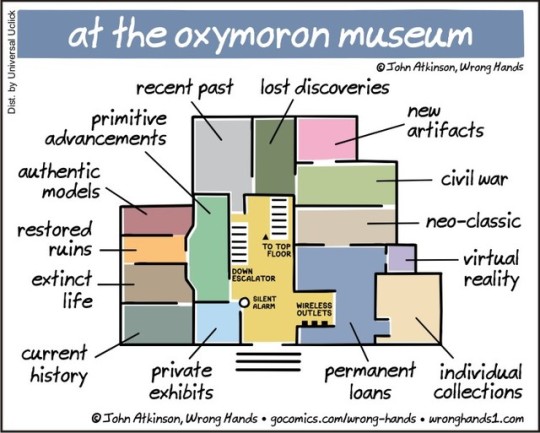Text
Seeing a lot of mine and my partner's high school/college friends get married and I'm having such fomo about not being "married" to academia in the sense that I don't have a PhD neither am I working on it and like. GAAAAAH when will the fomo stop
0 notes
Text
Seeing a lot of mine and my partner's high school/college friends get married and I'm having such fomo about not being "married" to academia in the sense that I don't have a PhD neither am I working on it and like. GAAAAAH when will the fomo stop
0 notes
Text
Me after one drink: you know how to ball, I know Aristotle
#personal#most relatable ts album ever. WDYM this is not the best writing ever#ngl i HATE the swifties going this is such gothic + DA vibes...girl. she's in an asylum in the mv
0 notes
Text
NEVER TOO MUCH BROWN IM AFRAID
#kfkkwkdkw i went to four stores and picked out all brown clothes LMFAO#one sage green and one blue too. but i didn't buy them it don't fit good#personal#my face#when they invent a better color than brown i shall reconsider and wear differently!!!
5 notes
·
View notes
Text
Back when I used to walk around my college in a corduroy blazer and slacks I didn't call it "dark academia" I called it "professor drag" and the purpose was to smoothly walk into parts of campus I wasn't supposed to access
79K notes
·
View notes
Text
worst part about getting angry is how much it makes you want to be mean
131K notes
·
View notes
Text
“My self-esteem is a jigsaw I cannot complete. I get one part of the picture and the rest lies in pieces. I suspect that there is no picture, only fragments. Other people seem to glue it together somehow and not to worry that they have been using pieces from several different boxes. So what is the answer? […] I would like to convince myself about myself but I cannot. The best there is are days when the jigsaw assumes it’s own meaning and I no longer care what picture is emerging.”
— Jeanette Winterson, Gut Symmetries
565 notes
·
View notes
Text
reading on reading
a literary syllabus [x]

how to read now by elaine castillo
a collection of essays by novelist and essayist elaine castillo about the politics and ethics of reading. castillo exposes the inherently colonial premises behind not only the works of many individual writers; but the way reading cultures analyze and canonize works, the tokenizing nature of the publishing industry that fails writers and readers of color, and the unfulfilled promises by bibliophiles and literary institutions to "build empathy" through reading diverse books.
"time in the codex" and "lastingness" by lisa robertson
two essays by poet lisa robertson from her prose collection nilling, both meditations on reading. “time in the codex” is an ode to the sensory and cognitive processes that reading evokes. “lastingness” explores the relationship between passivity and will when it comes to receiving the stories and ideas we read, using the work of hannah arendt to analyze texts by lucretius and pauline réage.
a history of reading by alberto manguel
alberto manguel (former director of argentina's national library) compiles a history of reading that encompasses the prehistory of books in ancient mesopotamia, the story of the library of alexandria and its influence in libraries that followed, literary societies such as the heian court, book thieves throughout time, book banning in multiple cultures, and the progression of text formats around the world from clay tablets to modern bookbinding.
selections from not to read by alejandro zambra (trans. megan mcdowell)
essays taken from the collection not to read by chilean writer alejandro zambra about the practice of reading, his own evolving reading life, and writing books; mixed with a variety of literary criticism. selections include "in praise of the photocopy," "against poets," "obligatory readings," "traveling with books," and "novels-- forget it."
"how do we read?", "the reading ape", and "inventing reading" by stanislas dahaene
three chapters from cognitive neuroscientist stainslas dahaene's book reading in the brain. "how do we read?" functionally breaks down how our brain understands written words. "the reading ape" imagines how our ability to read evolved by recycling preexisting neural circuits. "inventing reading" explores how languages themselves have formed over time to serve the way we think.
"when robots read books" by inderjeet mani
essay by computational linguist inderjeet mani on ways that artificial intelligence could enhance literary criticism by analyzing classic texts, particularly cumulative corpuses of works. examples of literary AI usage include finding similar character traits, archetypes, and tropes between different books and authors; quantitatively tracking literary trends; and generating timelines and maps of information pulled from narratives.
"uncritical reading" by michael warner
essay by english professor michael warner which attempts to define what "critical reading" actually is, the beginnings of a history of that practice, its alignment with agency and morality in academic culture, and what the qualities of "uncritical reading" (such as “identification, self-forgetfulness, reverie, sentimentality, enthusiasm, literalism, aversion, distraction") might offer us.
"someone reading a book is a sign of order in the world" by mary ruefle
essay adapted from a lecture in poet mary ruefle’s madness, rack, and honey that traces a reader's development through personal experiences in her own reading life. topics include rereading, what it means to read “the right book at the right time”, and the pleasure of finding imaginative connections between books.
3K notes
·
View notes
Photo

Susan Sontag, Reborn: Journals and Notebooks, 1947-1963
96K notes
·
View notes
Text
“You ruin your life by desensitizing yourself. We are all afraid to say too much, to feel too deeply, to let people know what they mean to us. Caring is not synonymous with crazy. Expressing to someone how special they are to you will make you vulnerable. There is no denying that. However, that is nothing to be ashamed of. There is something breathtakingly beautiful in the moments of smaller magic that occur when you strip down and are honest with those who are important to you. Let that girl know that she inspires you. Tell your mother you love her in front of your friends. Express, express, express. Open yourself up, do not harden yourself to the world, and be bold in who, and how you love. There is courage in that.”
— Bianca Sparacino How To Ruin Your Life (Without Even Noticing That You Are)
115K notes
·
View notes
Text
it can be tempting to live your life like a prequel. to live as if you’re setting up your own story.and once you lose the weight, once you have the money, once you graduate school, once you’re in a real relationship, once, once, once. then finally, you’ll begin to live, and everything you do up until that point is some kind of half-life, some unimportant foreword you can skip. don’t do this. inhabit your life completely. sink fully into the wealth of your existence. the power to manifest is in the fearless owning of who you are, so that you can shape where you’re going.
146K notes
·
View notes
Photo

Heather Havrilesky, How to Be a Person in the World
22K notes
·
View notes
Text
something ive noticed while reading dantes inferno is that there seems to be a lot of italians in hell
15K notes
·
View notes
Text
Admittedly I've always approached classics romantically - beloved and the lover, sun and the universe which means I approach it with the same patience, allowing myself to be a beginner, to make mistakes, to reach out to people, to thank often, to let go of the embarrassment of not knowing enough and the need to master everything all at once. However, the attitude towards corporate is wildly different. I made a big transition at 19 and I did it so gracefully, I'm making a big transition at 25 and I've lost all my grace. I'm more anxious, I feel way behind in life, I'm scared to look stupid and all of this adds to a v specific kind of procrastination where it usually takes hours for me to even get the work started. Doing the work has never been a problem, I get the work done but merely starting the work? Aw fucking hell. I keep saying progress is slow, things take time and maybe that's true. But it also might be the case that I'm so scared to be stupid or wrong or not have something work out again, that I keep pushing the work away. I mean, can't be stupid if I never even start y'know? And I hate thinking that way, that's no good that'll lead nowhere that has led nowhere and the excuses I make for it all...oof man I don't want to be 19 but I wish I had the quality I had back then, whatever it was, to take the fear and turn it into excitement, to not be intimidated by the big corporate lingo, to get actual learning done bc ofc the world was conspiring for me to achieve it. At 25, it all weighs too heavy, too dull for any hope.
#personal#i haven't had any thoughts in a while but here we are.... listening to hamilton surely is smth...this was during wait for you#i remember being so patience bc i was doing the work i was so sure and then it led to nothing so ofc i am scared again now#but god nay just fucking do it
1 note
·
View note


